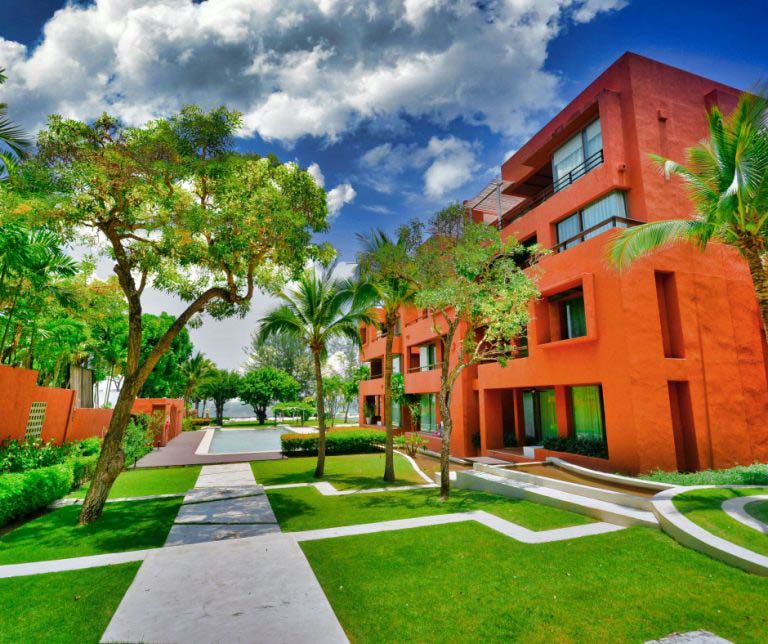This article explores the question, why do mortgage lenders ask for reserves from borrowers. Only some home buyers are required to show reserves. Still, there are specific conditions under which the Automated Underwriting System (AUS) mandates them.
Lenders require reserves from borrowers to assess their creditworthiness. Borrowers with low credit scores or high debt-to-income ratios are usually asked to maintain reserve funds.
Moreover, individuals lacking substantial traditional credit histories or those with multiple outstanding collection accounts might be required to accumulate reserves. Furthermore, borrowers who have experienced recent late payments following significant financial setbacks such as bankruptcy might need to prove they have one to three months of reserves.
Throughout this discussion, we will investigate when and why mortgage lenders ask for reserves, highlighting how the Automated Underwriting System influences these decisions.
What Are Reserves?
Reserves typically represent one month’s worth of housing payments, which include principal, interest, taxes, and insurance—commonly referred to as PITI. The automated underwriting system may mandate reserves in certain scenarios, particularly for mortgage loan applicants with credit scores below 620.
The specific amount of reserves needed can differ from one mortgage loan applicant to another, depending on various factors related to their financial profile. This variability addresses the question: Why do mortgage lenders ask for reserves?
Mortgage Lenders Asking for Reserves? Let Us Help You Prepare!
Contact us today to understand how reserves affect your loan approval and get guidance on how much you’ll need.
What One Month’s Reserves Consists of
The requirement for reserves, often stipulated by the automated underwriting system, can vary from one month to six months of PITI—principal, interest, taxes, and insurance—based on the income and financial profile of the mortgage loan applicant.
Why do mortgage lenders ask for reserves? They serve as significant compensating factors, particularly when manual underwriting is required. In such cases, a mortgage underwriter typically demands three months’ reserves.
It’s important to understand that reserves must be derived from the borrower’s qualified funds and cannot be gifted. Moreover, reserves need not be held solely in cash; they can also be maintained in forms such as IRAs, investment accounts, or 401(k)s. This approach allows borrowers to meet their reserve requirements through various types of financial assets, ensuring flexibility in managing and demonstrating financial stability.
Why do Lenders Require Reserves?
Why do mortgage lenders ask for reserves? While the Automated Underwriting System (AUS) may not always specify a need for reserves, individual mortgage underwriters or lenders with specific overlays might impose additional requirements beyond standard mortgage guidelines.
These lenders insist on reserves to ensure borrowers possess the financial buffer to sustain mortgage payments amid unexpected financial challenges or emergencies. Reserves are generally quantified as several months’ worth of mortgage payments, covering principal, interest, taxes, insurance, and potentially homeowners association fees.
Reserves play a critical role for lenders for several reasons:
Risk Mitigation
Reserves act as a financial safeguard, protecting against unforeseen difficulties such as sudden income loss, unexpected medical costs, or major repairs. This safety net significantly lowers the lender’s risk of the borrower defaulting.
Financial Stability Indication
A borrower’s ability to accrue and maintain reserves demonstrates robust financial management skills, providing lenders with assurance that the borrower can responsibly manage debt.
Protection Against Market Fluctuations
In unstable markets, reserves ensure that borrowers can continue their mortgage payments even if their property’s market value decreases.
Enhancing Loan Approval
Adequate reserves can positively affect the loan approval process, potentially leading to more favorable terms, such as lower interest rates.
The requirement for reserves varies among lenders and depends on the type of loan. For instance, investment properties typically require more extensive reserves than primary residences due to the higher risks involved. This variance underscores the importance of reserves in lending scenarios, emphasizing why mortgage lenders frequently request them.
Why Do Mortgage Lenders Ask For Reserves From Some Borrowers and Not Others?
“Why Do Mortgage Lenders Ask For Reserves?” is a common question among mortgage loan applicants. The answer lies in the lenders’ need to ensure financial stability and risk mitigation. Reserves are only required from some applicants but are typically requested from those with unstable employment, high debt-to-income ratios, poor credit history, or an overall weak financial profile.
Potential homeowners need to understand that while gifted funds can be used for the down payment on a home purchase, these cannot be used as reserves.
Why do mortgage lenders ask for reserves specifically from the borrower’s funds? This requirement helps ensure that the borrower has sufficient personal financial resources to manage any unforeseen expenses or financial downturns. Reserves can include funds in cash and assets held in 401k, IRA, or other retirement and investment accounts, though only 60% of these retirement funds’ value can be considered reserves.
Wondering About Reserves for Your Mortgage? We Can Help You Meet the Requirements!
Reach out now to learn how reserves impact your mortgage approval and how you can meet the requirements.
Why do Some Lenders Require Applicants to Reserve Cash After the Purchase is Complete?
Why do mortgage lenders ask for reserves? Mortgage lenders require borrowers to maintain a cash reserve after completing a home purchase for several crucial reasons:
- Ensuring Continued Payment Ability: It is important to have cash reserves after closing a mortgage in case of an unforeseen financial emergency, like losing a job or facing medical expenses. This can help you maintain your mortgage payments and prevent any defaults.
- Covering Additional Homeownership Costs: Owning a home involves various unexpected costs beyond the mortgage payment, such as maintenance issues, appliance breakdowns, or emergency repairs. Cash reserves help homeowners manage these expenses without financial strain.
- Demonstrating Financial Prudence: Borrowers who can save enough to have funds left over after purchasing a home show financial prudence and stability. This is a positive indicator for lenders, suggesting that the borrower is less likely to face foreclosure due to poor financial management.
- Adapting to Market Conditions: In uncertain economic times, having extra financial cushion can be crucial. It allows homeowners to adapt to changes in property values or personal financial circumstances without immediate crisis.
- Fulfilling Specific Loan Requirements: Certain types of loans, like jumbo loans or loans for investment properties, might have stricter reserve requirements because of the higher risk associated with larger loan amounts or rental income dependency.
Lenders assess reserves in terms of months’ worth of mortgage payments. Typically, they require anywhere from two to six months’ worth of mortgage payments in reserve. However, this can vary depending on the borrower’s financial situation, the property type, and the loan program.
What Are My Options If I Do Not Have Reserves
There are many cases where the mortgage loan application cannot meet the reserves requirement by lenders. This often causes delays in mortgage loan closings. Large and irregular deposits are considered unsourced funds. It cannot be used in the mortgage world. All irregular and larger deposits need to be sourced.
Case Scenario on How To Come Up With Reserves During Mortgage Process
Here’s an example scenario that answers the question, “Why do mortgage lenders ask for reserves?” Suppose you sell a vehicle and receive a $10,000 deposit, which you plan to use as reserves. To qualify these funds as reserves, you would need to provide several documents:
- A copy of the check from the buyer
- The bill of sale
- The vehicle title
- The deposit slip showing the transaction
Once deposited, an updated bank complaint statement showing the $10,000 is also necessary. However, if the vehicle sale was for cash and the cash was deposited into your bank account, this would not meet the criteria for sourced funds. Mortgage underwriters will only consider such deposits as valid reserves if they verify the source of the cash. This underscores why mortgage lenders are stringent about the documentation needed when considering funds for reserves.
Creative Ways of Showing Reserves
Option two is to add the name to a family member’s bank account as a joint account holder. An account containing seasoned funds such as a checking or savings account. We will discuss a case scenario once a name is added to a family member’s or business associate’s checking or savings account.
After adding the name as a joint account holder, you need to get 60 days of bank statement printouts. Get every page signed, stamped, and dated by the teller, reflecting that the reserves have been seasoned for 60 days.
Any large or irregular deposits need to be addressed. Once the name is added to the other person’s bank account, get 60 days of bank statement printouts. Get it signed, dated, and stamped by the bank teller. Also, we need a letter signed and dated by the main account holder stating they have full access to the bank account. This option works all the time.
Mortgage Lenders Asking for Reserves? Let Us Help You Get the Right Amount!
Contact us today to discuss how much you need and how we can help you prepare for your mortgage application
Why Do Mortgage Lenders Ask For Reserves If It Is Not Enforced After Closing
The mortgage lender does not enforce reserves after the home closes. Whatever happens after closing is no longer the mortgage lender’s business. Homeowners are free to do whatever they want. With the reserves, you can buy furniture, a car, or other high-ticket items.
How Much Should You Have in Your Reserve Fund After Closing?
After closing, the amount of money required for your reserve fund depends on various factors, such as the type of property you’re purchasing, the lender’s requirements, and your financial situation. Generally, lenders require reserves of 2-6 months’ mortgage payments, which can be higher for riskier loans. Factors such as job stability, credit history, area real estate market, and personal comfort should also be considered when determining the right amount for your reserve fund after closing.
Reserves Are Normally Required For Multi-Unit Properties
Why do mortgage lenders ask for reserves from borrowers buying three to four-unit multi-family homes? Reserves show the borrower has skin in the game. In the event the borrower cannot make a mortgage payment due to repairs being needed, they have reserves to count on. 3 to 6 months of reserves may be required for 3 to 4-unit and investment properties.
It does not matter how great a mortgage loan applicant’s credit or financial profile is. If you have any questions about the contents of this article or other mortgage-related topics, please get in touch with us at Gustan Cho Associates at 800-900-8569 or text us for a faster response. Or email us at gcho@gustancho.com.
FAQs: Why Do Mortgage Lenders Ask For Reserves From Borrowers
- What are reserves in the context of a mortgage? Reserves are funds borrowers must have after closing on a house, typically equating to a certain number of months’ worth of housing payments. PITI covers mortgages in financial crisis.
- Why do mortgage lenders ask for reserves? Lenders request reserves to reduce the risk of loan default by ensuring borrowers can continue making payments during financial setbacks, like a job loss or medical emergency. Reserves also demonstrate a borrower’s financial prudence and ability to manage money, which can enhance their loan approval chances and potentially secure more favorable loan terms.
- When do lenders require reserves? Not all borrowers are mandated to provide reserves. However, an Automated Underwriting System (AUS) may require reserves for applicants with lower credit scores (under 620), high debt-to-income ratios, limited credit history, numerous outstanding collections, or a recent history of late payments following a significant credit event like bankruptcy.
- Can reserves be gifted? No, reserves cannot be gifted. They must come from the borrower’s own funds, though these funds do not necessarily need to be in cash form. Acceptable reserves can include assets in an IRA, investment account, or 401(k). Only 60% of the value might be considered usable for reserves using retirement funds.
- What does one month’s reserves consist of? One month’s reserves typically comprise the total monthly housing expense (PITI). Depending on the borrower’s profile and the loan specifics, lenders might require reserves ranging from one month to six months of PITI.
- Why do some lenders require reserves even after the purchase is complete? Lenders may require post-purchase reserves to ensure borrowers can handle additional homeownership costs beyond the mortgage payment. These funds help cover unexpected expenses such as repairs and maintenance, thus protecting the borrower and lender from the risk of default.
- What if I do not have reserves? Lack of reserves can delay or impede loan approval. Borrowers might need to source funds appropriately or consider adding their name as a joint account holder on another person’s bank account with seasoned funds to meet reserve requirements.
- Are reserves required for all types of properties? Reserve requirements can be more stringent for multi-unit or investment properties due to the higher risks associated with these loans. Lenders may require more substantial reserves to ensure borrowers can manage potential vacancies or maintenance issues.
For more information or specific questions about mortgage reserves, please contact a mortgage professional.
Ready to Apply for a Mortgage? Let Us Help You Meet Reserve Requirements!
Contact us now to understand what you need and how we can assist you in meeting these requirements.











Are reserves checked at the closing table?
It can be checked at the closing table.